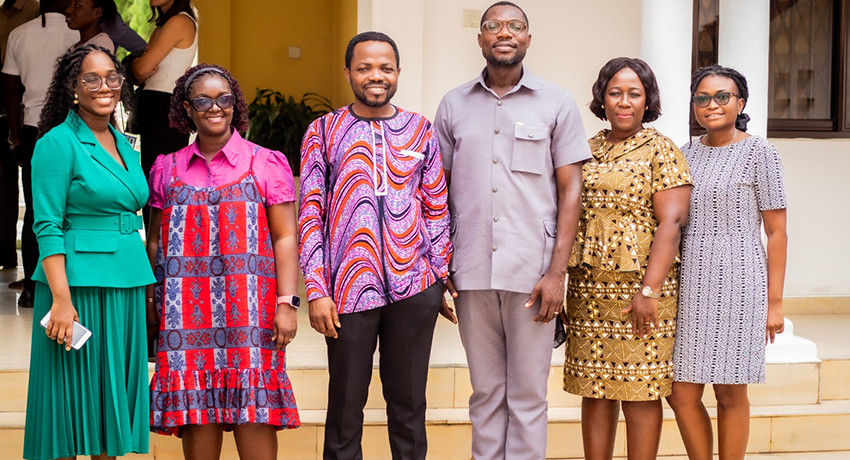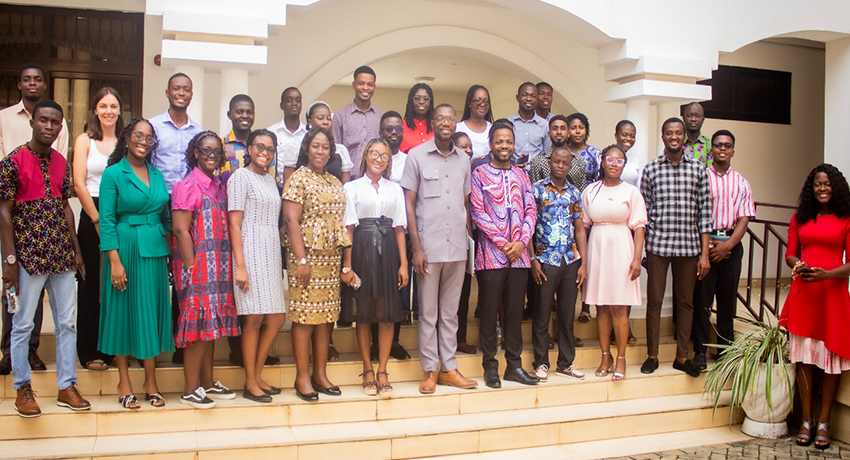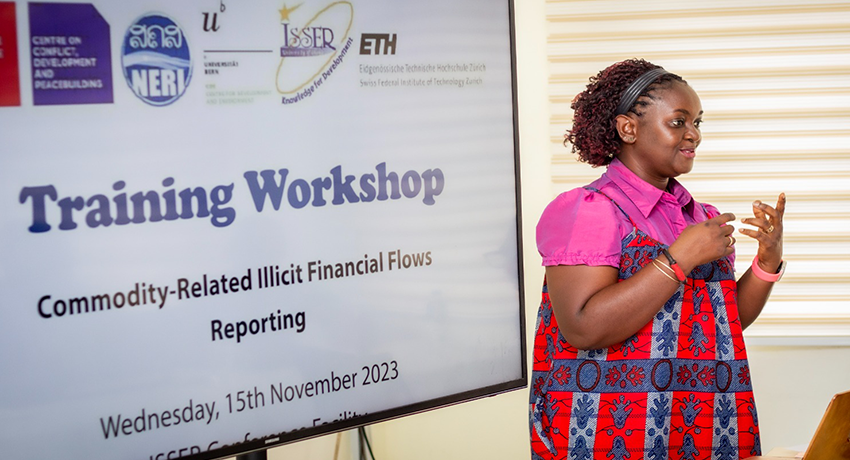Dr. Ama Asantewah Ahene-Codjoe (pictured) and her fellow researchers on the “Curbing Illicit Financial Flows" project were pleased by the opportunity to contribute to strengthening the capacity of journalist for effective IFF reporting.
A training workshop on Trade Mispricing and Illicit Financial Flows (IFF) reporting for journalists has concluded with participants expressing strengthened capacity and renewed commitment to report commodity-trade-related IFF issues. Journalists from various media institutions engaged with the topic, equipping themselves with new knowledge and skills for effective IFF reporting.
The training, held on 15 November at ISSER, was organized to deepen journalists' understanding of IFF and provide them with the knowledge and tools needed to report on this complex financial issue accurately. It formed part of activities marking the conclusion of the ISSER-based “Curbing Illicit Financial Flows" project and represents a significant step toward creating a more informed media landscape, capable of accurate and effective IFF reporting.
Among the topics covered were understanding the different forms of IFF and their impact, recognizing red flags, investigative techniques for identifying IFF, and analyzing legal and regulatory frameworks designed to combat illicit financial activities. The agenda also included discussions on international agreements and cooperation to combat IFF, along with case studies and practical reporting techniques.
“An avenue to renew knowledge and gain new insights”

The participants, 28 enthusiastic learners including journalists from six media outlets in Ghana, fellows of the Media Foundation for West Africa (MFWA), and MPhil students with interest in IFF issues from the University of Ghana’s Department of Agricultural Economics and Agribusiness, shared positive feedback about the training.
Ibrahim Usman, a journalist and MFWA fellow, said that the workshop contributed significantly to deepening his understanding of the methods used in pricing commodities. For him, the training was “an avenue to renew knowledge and gain new insights.”
Mary Anane-Amponsah of the Daily Graphic newspaper expressed her satisfaction with the workshop, stating, "I have been equipped with enough information to do investigative stories on the topic, and this can support the country's efforts in finding practical solutions to fight the challenge."
Benjamin Arcton-Tettey, a reporter with the Ghanaian Times newspaper described the training as impressive, adding, "It shed light on the IFF phenomenon and why I should constantly inform the public about its negative impact on the economy."

The training was facilitated by research team members, with support from Mr. Fiifi Koomson, who participated actively in the interactions and shared his rich experiences with participants.
Beyond gaining knowledge and tools to advance IFF reporting, the Trade Mispricing and Illicit Financial Flows (IFF) reporting training provided a valuable opportunity for participants to foster new networks and exchange learning with their peers.

Besides the rich learning, the training was an opportunity for participants to foster new networks
- Log in to post comments

